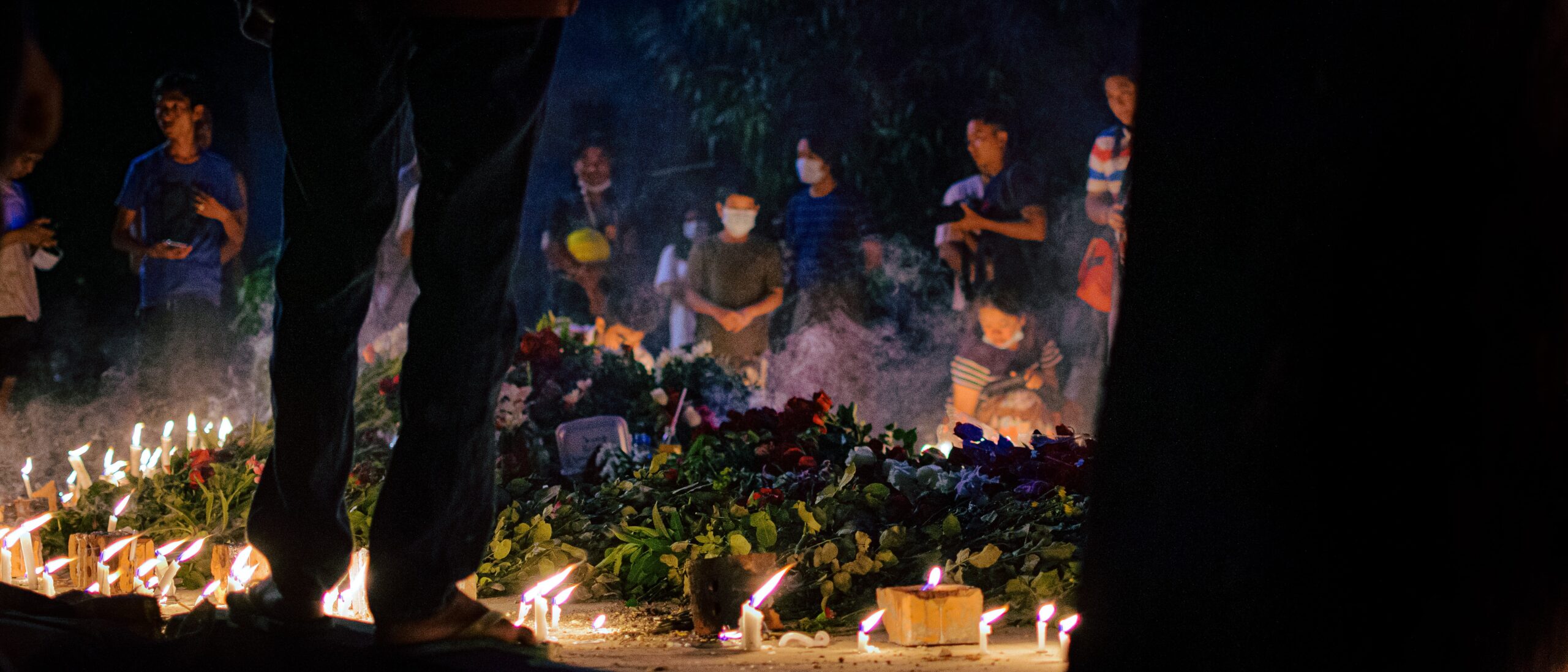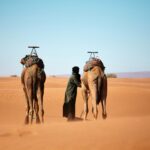On February 1, the Tatmadaw military in Myanmar declared a year-long state of emergency after a coup d’état against the National League for Democracy (NLD) party. The coup followed a general election last November where NLD had won with more than 80 percent of the vote over the military-backed opposition. To this day, the military junta are holding NLD’s party leader and Nobel Peace Prize winner Aung San Suu Kyi, along with other top MPs, at an unknown location.
By March, over 200 people had been killed and over 2000 arrested by soldiers who have tried to squash civil unrest and widespread protests. The UN Security Council and human rights rapporteurs expressed deep concern early on over the coup’s threat to Myanmar’s democracy, but at the same time failed to agree on any counteraction in the clash between human rights and respect of state sovereignty.
A video of a woman filming her exercise routine in front of Myanmar’s parliament went viral in early February as she happened to get the first movements of the military coup on camera. In the video, Khing Hnin Wai continues to dance with a face mask on, not knowing that several SUVs have pulled up to the Assembly of the Union complex behind her.
On that day, the military toppled the government that had been led by Suu Kyi and NLD since the 2015 election. The military has used accusations of electoral fraud to justify the coup and installment of a year-long state of emergency. The military-backed opposition has also raised allegations that Suu Kyi broke Covid-19 rules during her party’s campaign and accepted a bribe of $600,000 US dollars and 11kg of gold. The allegations have been refuted by her lawyer, Khin Maung Zaw, a veteran human rights lawyer who in the past defended two journalists against Suu Kyi when they were reporting on the Rohingya crisis. Phil Robertson, deputy director of Human Rights Watch in Asia, has also called the allegations “somewhat Trumpian” because of the lack of evidence.
Aung San Suu Kyi and Myanmar’s military past and present
As a nation transitioning into democracy, Myanmar has struggled with the power of its military since it gained independence from British rule in 1948 under the leadership of General Aung San. His daughter, Suu Kyi, first became world-famous in the 1990s for her democracy activism against the military government and was, as a result, forced to go under house arrest between 1989 and 2010. In 1991 she was awarded the Nobel Peace Prize for her calls for peaceful democratic reform.
The most troubling difficulty for democratic reformation of the government can be found in Myanmar’s constitution from 2008. It cements the military’s influence by automatically allocating to them 25% of all parliamentary seats – thereby decreasing the chance of effective majority – and gives them additional control over the ministries of home affairs, defense and border affairs. Back in 2015, when the NLD first came to power, the constitution also made it impossible for Suu Kyi to become president de jure due to her having children of other nationalities.
The Tatmadaw military also bears heavy responsibility for the campaigns of ethnic cleansing and crimes against humanity against the ethnic minority Rohingya in the Rakhine state in 2017. As descendants of Arab traders and other groups, the Rohingya represented the largest percentage of Muslims in Myanmar numbering one million at the start of 2017, but thousands were killed and displaced and more than 700,000 fled to Bangladesh later that year.
The ruling democratic party has been widely criticized for its response to the Rakhine situation, too. According to Human Rights Watch and Amnesty International, the NLD party has made no significant progress in expanding the democratic space in Myanmar to resolve the continuing crisis or ensure justice for the victims. Suu Kyi received strong backlash internationally for denying the allegations of genocide as the military said it was fighting Rohingya militants and not civilians. Despite being accused of inaction in intercepting the military, she has maintained popularity among Myanmar’s Buddhist majority, which ultimately secured another win for Kyi’s party in the 2020 election.
Post coup protests
Thanks to her considerable popularity and years of activism, Suu Kyi, now aged 75, has become a key symbol and icon in the rising democratic protests against the coup in Myanmar. As reported by CNN in early February, protesters have been seen marching while holding banners with Suu Kyi’s face on them and doing the anti-government three-finger salute derived from the “Hunger Games” franchise that first became popular to use during the 2014 coup in Thailand.
The junta has used an increasing amount of violence to quell the anti-coup protests, which have amassed more than 200 deaths, as reported by the Guardian, and over 2 000 arbitrarily detained, according to the UN Human Rights Office (OHCHR). The large campaign of strikes is currently paralyzing the country’s economy and the UN World Food Programme warns that it could undermine the ability of the poorest to feed themselves as the price on rice as a common staple food has risen up to 35 percent in parts of the north since the coup began. In a short video shared on social media from the live protest scenes in Myitkyina in Kachin State, a nun can be seen kneeling in front of armed security forces in Myanmar in an attempt to stop them from firing against civilians. “Suddenly I saw police, military and water cannons following the protesters. … Then they opened fire and started beating the protesters. I was shocked and I thought today is the day I will die. I decided to die”, sister Ann Roza was quoted saying on Sky News on March 6.
“Suddenly I saw police, military and water cannons following the protesters. … Then they opened fire and started beating the protesters. I was shocked and I thought today is the day I will die. I decided to die.”
The Responsibility to Protect and UN response
The situation in Myanmar has seen little to no change over the past several weeks. The “Responsibility to Protect” was established as a political commitment by the UN in 2005 to give the international community a greater ability to intervene in circumstances where civilians risk facing genocide or crimes against humanity. However, the international response to Myanmar’s democracy crisis has been divided.
The UN Security Council met in early February shortly after the coup had unfolded, but failed to agree on a joint statement on the condemnation of the coup after it was vetoed by China and backed by Russia, India and Vietnam. As explained by both Garrett Evans in the Stockholm International Peace Research Institute’s yearbook from 2012 and in Rotmann et al’s (2014) article ‘Major powers and the contested evolution of a responsibility to protect, Conflict, Security & Development’, the concept of R2P has historically been contested by Global South countries like China because they view national sovereignty as associated with resistance to Western imperialism. For example, China has protected Myanmar from criticism over the crackdown on the Rohingya population in the past, as it sees Myanmar as important to Chinese economic interests.
A joint statement by special rapporteur Tom Andrews and the coordination committee of the OHCHR was put out on February 12 to condemn the coup and urge the Security Council to consider all the options it has previously used to deal with the gross human rights violations. On paper, there seems to be light at the end of the tunnel, as a statement made by the President of the Security Council was released on March 10 to reaffirm its support for the people of Myanmar. But as the death rate continues to rise and the democracy protests are closing in on the two-month mark, there is no telling that the movement will not be forcibly shut down as it has been in Hong Kong and other places where the refusal of R2P has been even stronger.
As the Tatmadaw hardens its forcibly seized grip on Myanmar’s government, protests have continued to emerge and live on in cities all over the country. If the international community will not step in to help the people’s democracy plea in Myanmar, absolute national sovereignty risks trumping universal human rights and will only put another nail in the coffin for the inefficient principle of the responsibility to protect.

Isabel Wilson
Writer for Utblick since autumn 2020





